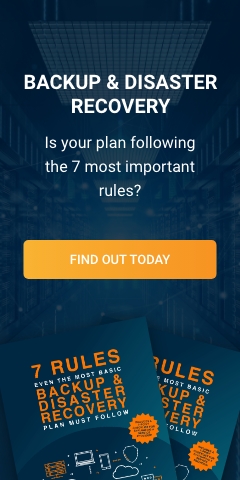According to Cisco’s 2017 Cybersecurity Annual Report, 8 of the 22 organizations surveyed lost up to 20% of their revenue as a result of a data breach. As 2017 sees more work done online, more attacks due to system vulnerabilities are to be expected. This means that business owners need to beef up their security if they want to make it through the year.
And in order to beef up security, small- and medium-sized businesses will have to prioritize vendor management and adopt a comprehensive approach to mitigating third-party risks and reducing the chances of being breached. This begins with going through contracts with new or existing vendors with a fine-tooth comb, because you can’t expect someone to be accountable for something if it wasn’t stated to begin with.
Why are vendor management solutions important?
First, they will clearly state service level agreements and security or privacy provisions. Consider it a part of your third-party risk management (TPRM) process, where you will evaluate each clause in the contract and insert any security-specific language as needed. This includes spelling out expectations for service levels, service delivery, response times, uptime, and recovery time.
By failing to outline such crucial details, it could potentially lead to IT audit issues, and you’re left holding the bag. After a security failure, you might ask your vendor, “What’s your procedure for dealing with security breaches?” And the vendor will hold up the contract and say, “Tell me where it says in here that we have to handle that?”
Get to know your vendors
If your organization doesn't have a complete list of vendors, you should compile one ASAP. Since third parties often have unrestricted access to your networks and valuable data, it's vital that you assess where your vendor stands when it comes to cybersecurity to prevent any unwanted incidents.

Manage direct network access
It’s important that you know what data your suppliers have access to and which vendors have direct network access. If some vendors have access to your assets, systems, and network -- will you be able to manage and control that? Follow the principle of least privilege, whereby vendors are given the lowest level of user rights possible but are still be able to do their jobs.
Conduct due diligence reviews
A due diligence review provides assurance that a potential security vendor is financially stable, ethically sound, and has a strong corporate structure. Reviews should evaluate the risks that vendors might pose to your organization. Failing to perform due diligence reviews could lead to monetary penalties, revoked licenses, and even legal action against your company if the vendor is found to be non-compliant.
Ensure vendors report incidents to you
Vendors typically notify you of a security breach, but some may choose to keep quiet as a last-ditch effort to maintain their relationship with you. It's important that you make it clear to vendors that they must come forward, in case of a breach.
Assess the third parties of your third parties
Fourth-party monitoring gives you visibility when it comes to the other third parties your third parties are sharing data or network access with. Just because your third parties have secure cyber security measures in place doesn't guarantee your fourth parties will uphold the same standards.
Vendor management best practices are essential to the success of your small- or medium-sized business. Neglecting them could make your organization a prime target for cybercriminals. Keep these threats at bay with our Consulting & Vendor Management services or contact Complete Technology today!


